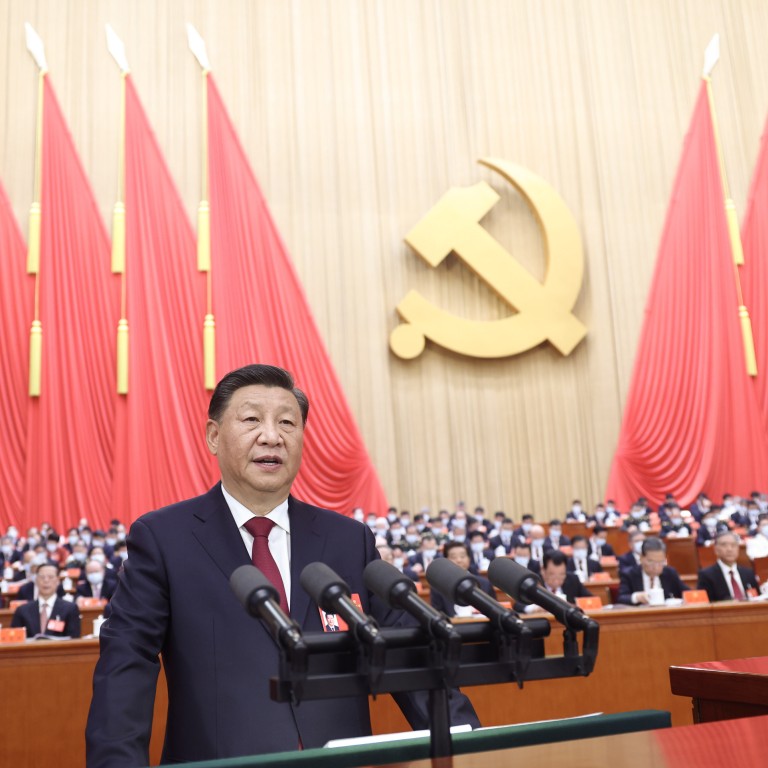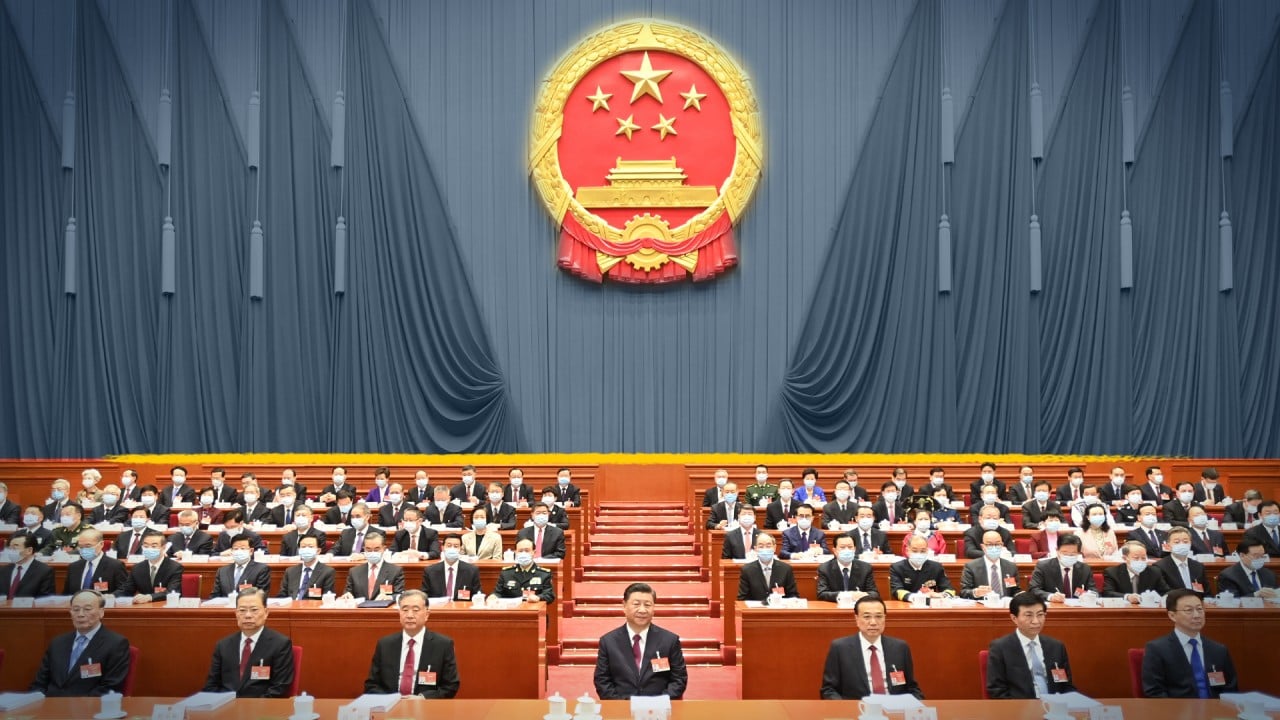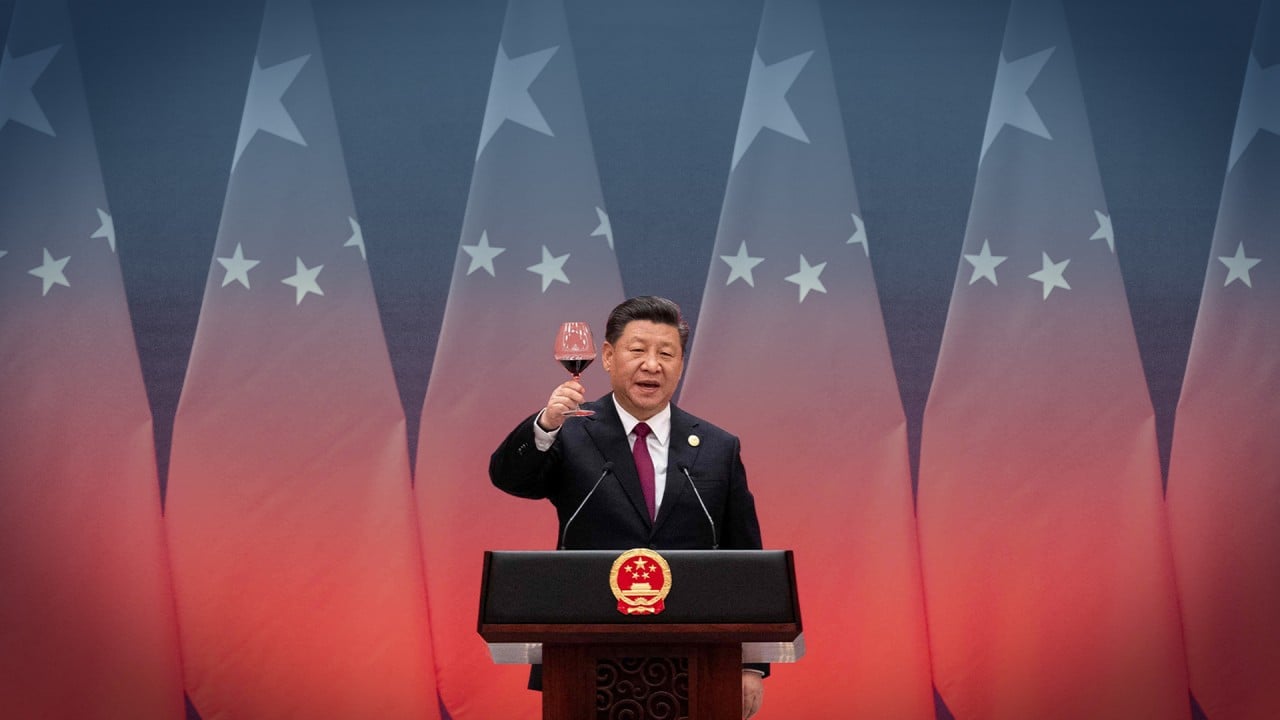
What Xi Jinping’s shortened congress work report did not mention
- Full version of work report alerts party to a ‘new great struggle’, promotes Taiwan’s peaceful reunification
- Xi warns of money worship, ‘deeply shocking cases of corruption’
During the address, Xi promised “incomparable glory” to restore the country to the forefront of global powers, hailed the party’s achievements over the past 10 years, and rallied the country to brace for the challenges it must face in the future.
But the 105-minute speech was a departure from tradition. It was a scaled-down version of the full work report, which this time was 72 pages long, and laid out a more detailed assessment of multiple political and social issues that were only shortened in Xi’s speech, but remain key parts of China’s core interests.
It is also believed the speech was shortened out of concern for the retired elderly party leaders who attended the event.
The unabridged work report, which was released soon after Xi’s speech, went into much greater detail about the challenges ahead for the country and the party, and singled out shortcomings in party performance.
“Despite repeated warnings, pointless formalities, bureaucratise, hedonism, and extravagance persisted in some localities and departments. Privilege-seeking mindsets and practices posed a serious problem, and some deeply shocking cases of corruption had been uncovered,” the report said
It also blamed “some people” for a lack confidence in the socialist political system with Chinese characteristics, and who ignored the related laws.
It also raised questions about the party’s efforts on environmental protection and to ensure people’s well-being. According to the report, the systems for safeguarding national security were inadequate and the party’s capacity to respond to various risks, including national defence and the military, was insufficient.
China’s leader taps IT, AI and new energy sectors as future engines of growth
“These were just some of the problems we faced. Back then, many people, both in and outside our party, were worried about the future of the party and the country,” the report said, referring to the period before Xi’s leadership.
The report also highlighted the party’s achievements in providing better protections for human rights, ethnic minorities and religion. It said the party made progress in promoting ethnic unity and implemented the party’s basic policy on religious affairs.
“We have not yielded any ground on matters of principle, and we have resolutely safeguarded China’s sovereignty, security, and development interests … we have effectively contained ethnic separatists, religious extremists and violent terrorists and secured important progress in the campaigns to combat and root out organised crime,” the report said.
Other than stressing “one country, two systems”, the report also emphasised that China would inspire more people in Hong Kong and Macau to love both the country and their own regions.
Zero tolerance for corrupt cadres with business links, Xi Jinping warns
Regarding Taiwan, Xi’s speech did not mention the 1992 consensus, which was the outcome of a meeting in 1992 between mainland China and Taiwan that set the diplomatic basis between the two parties.
However, the full report did say that Beijing would adhere to the one-China principle and the 1992 consensus.
“On this basis, we will conduct extensive and in-depth consultations on cross-strait relations and national reunification with people from all political parties, sectors, and social strata in Taiwan, and we will work with them to promote peaceful development of cross-strait relations and advance the process of China’s peaceful reunification,” the report said.



